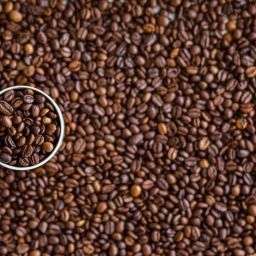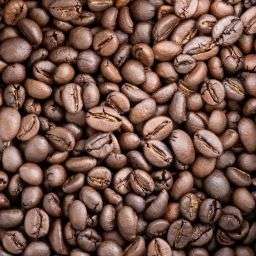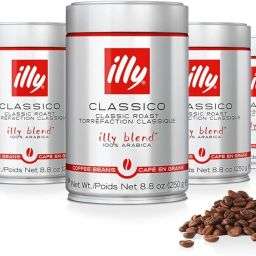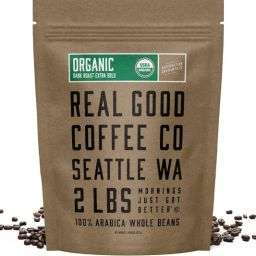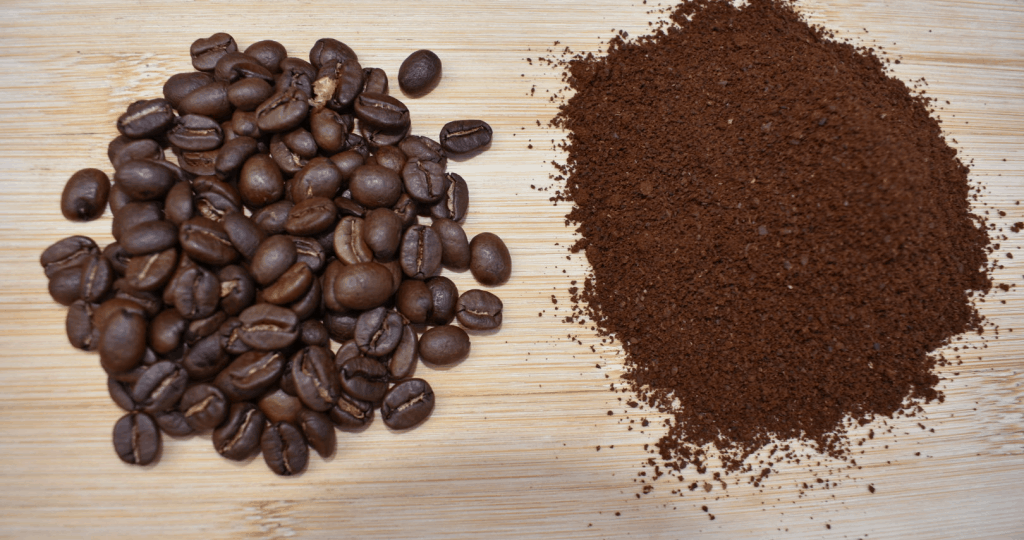
In the world of coffee brewing, the debate between whole coffee beans and ground coffee is ongoing, with each form presenting unique benefits and challenges. Understanding these differences is crucial for coffee enthusiasts aiming to achieve the perfect brew.
This article delves into the significance of whole coffee beans versus ground coffee, focusing on measurement, brewing, and taste aspects. By exploring these key areas, coffee lovers can make informed decisions tailored to their preferences and lifestyle, ensuring a delightful coffee experience every time.
Key Takeaways
Whole Coffee Beans: Whole coffee beans are renowned for their superior flavor and freshness. The process of grinding beans just before brewing preserves the coffee’s natural oils, releasing more flavor and aroma compared to pre-ground coffee. However, this freshness comes with the requirement of owning a grinder and dedicating more time to the coffee preparation process. The effort and equipment needed for whole beans may not suit everyone, especially those with a tight schedule.
Ground Coffee – Convenience and Consistency: On the other hand, ground coffee offers unmatched convenience and consistency. Pre-ground coffee eliminates the need for a coffee grinder, making it a time-saver for those with busy mornings or those who prefer a quick coffee-making process. It also ensures a consistent flavor and strength, providing a reliable coffee experience with each brew. While it may lose freshness faster than whole beans, the convenience factor makes ground coffee a preferred choice for many.
The Importance of Accurate Measurement: Whether opting for whole beans or ground coffee, accurate measurement is key to brewing the perfect cup. Weight measurements are generally more reliable than volume measurements due to the variance in bean size and density. A kitchen scale can significantly enhance the precision of coffee measurements, contributing to a consistently high-quality brew.
Personal Preferences and Lifestyle Considerations: Choosing between whole beans and ground coffee ultimately depends on personal preferences and lifestyle. Factors such as brewing frequency, volume of coffee consumed, and taste preferences play a significant role in this decision. Those valuing freshness and flavor might lean towards whole beans, while individuals prioritizing convenience might prefer ground coffee
Benefits of Whole Coffee Beans
Whole coffee beans are celebrated for their superior aroma and flavor, attributes that stem from the beans’ oils, which are most potent when freshly ground. This freshness not only elevates the taste but also enhances the overall sensory experience, with the act of grinding beans adding an aesthetic appeal to the coffee preparation ritual. Moreover, whole beans have a longer shelf life compared to ground coffee, as they are less exposed to oxygen, which accelerates the degradation process.
However, the journey to a perfect cup of coffee with whole beans involves certain challenges. The most obvious is the need for a coffee grinder, an additional investment that might not appeal to all. Even with a high-quality grinder, achieving a consistent grind is often difficult, which can affect the extraction and flavor of the coffee.
Furthermore, whole beans typically come with a higher price tag, reflecting the premium placed on their freshness and quality. The process of grinding also demands time and effort, factors that might deter those with a busy lifestyle. Proper storage is another consideration; to maintain their quality, whole beans must be stored in an airtight container away from light and moisture, requiring space and a bit of diligence.
Advantages of Ground Coffee
Ground coffee stands out for its convenience and consistency. Pre-ground and ready to brew, it saves time and simplifies the coffee-making process, a boon for those with hectic mornings or minimal interest in the nuances of coffee preparation. This convenience extends to the consistency of flavor and strength, as the grind size is uniform, ensuring a predictable and reliable coffee experience with each brew.
Ground coffee also tends to be more affordable than whole beans, making it an attractive option for budget-conscious consumers. Its easy storage, without the need for specialized equipment, and widespread availability further contribute to its appeal.
Despite these advantages, ground coffee is not without drawbacks. The most significant is the rapid loss of flavor and aroma after grinding, as the increased surface area exposed to air accelerates oxidation. This results in a coffee that, while convenient, may lack the depth and richness of a brew made from freshly ground beans.
Additionally, the pre-ground nature of the coffee means it is tailored to a specific brewing method, reducing flexibility for the user. Quality control can also be a concern, as the grinding process and storage conditions prior to purchase can vary greatly, affecting the freshness and taste of the coffee.
Measurement and Brewing Techniques
Accurate measurement plays a pivotal role in the art of coffee brewing, whether dealing with whole beans or ground coffee. Precision in measurement ensures consistency in flavor and strength, making the use of scales an indispensable practice for coffee enthusiasts. Digital kitchen scales, capable of measuring to the gram, enable users to replicate their ideal coffee experience with each brew.
For various brewing methods, the coffee-to-water ratio is a critical factor that influences the taste and quality of the coffee. Common ratios include:
- Drip Coffee: 1:15 to 1:18 (coffee to water)
- French Press: 1:15 to 1:17
- Espresso: 1:2 to 1:3
- Cold Brew: 1:5 to 1:8
Grind size also significantly affects the brewing process. A finer grind is ideal for espresso due to its quick extraction time, while a coarser grind suits methods like the French press, which have a longer steeping period. Adjusting the grind size can help balance extraction, preventing under or over-extraction and ensuring the best possible flavor.
FAQs
How should I store my coffee to preserve freshness? A: Store whole beans or ground coffee in an airtight container in a cool, dark place. Avoid the refrigerator or freezer to prevent moisture and odor absorption, which can detract from the coffee’s flavor and freshness.
Can I use the same measurements for different brewing methods? A: While starting with a standard ratio, like 1:15 for coffee to water, is helpful, adjustments may be necessary depending on the brewing method and personal taste preferences. Experimentation can lead to discovering the perfect balance for each method.
Final Thoughts
Selecting between whole coffee beans and ground coffee, and mastering the measurement and brewing techniques, comes down to personal preference and lifestyle. Whether valuing the freshness and depth of flavor offered by whole beans or the convenience and consistency of ground coffee, accurate measurement and understanding the impact of grind size are essential for achieving the perfect cup of coffee. By considering these factors, coffee lovers can enhance their brewing process and enjoy a superior coffee experience tailored to their tastes.


